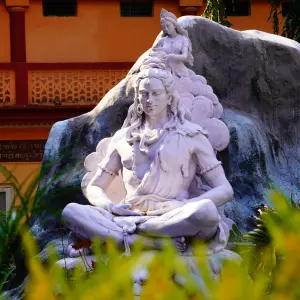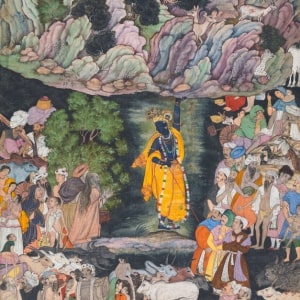Shivratri, the auspicious night dedicated to Lord Shiva, holds profound significance in the Hindu tradition. Celebrated with great fervor and devotion, Shivratri is not just a religious observance but a symbolic representation of various spiritual and cosmic phenomena but still many people don’t know the reason behind why is Shivratri celebrated. So, in this article we are delving into the roots of this sacred occasion unveiling a tapestry of legends, rituals, and deeper meanings that continue to resonate with millions across the globe.

The Legend Behind Why is Shivratri Celebrated?
The legend behind why is Shivratri celebrated varies across different regions of India, but one of the most widely accepted narratives is the marriage of Lord Shiva and Goddess Parvati. According to Hindu mythology, Goddess Parvati performed intense penance to win the heart of Lord Shiva, eventually succeeding and marrying him. Shivratri is believed to commemorate this divine union, symbolizing the convergence of masculine and feminine energies, representing creation and preservation in the cosmic order.
Another legend associated with Shivratri is the Samudra Manthan or the churning of the cosmic ocean. It is believed that during this celestial event, a pot of poison emerged, threatening to destroy the universe. To save creation, Lord Shiva consumed the poison, but instead of swallowing it, he held it in his throat, turning it blue. Shivratri is observed as the night when Lord Shiva performed this act of sacrifice, signifying the triumph of good over evil and the willingness to endure suffering for the greater good.
Spiritual Significance Behind Why is Shivratri Celebrated?
Beyond the myths and legends, there is also a spiritual significance behind why is Shivratri celebrated. It is believed that on this night, the planetary positions align in a manner that enhances the spiritual energy of individuals. Devotees engage in various rituals such as fasting, meditation, and chanting of mantras to invoke the blessings of Lord Shiva and attain spiritual upliftment.
The vigil observed on Shivratri, known as ‘Jagran,’ signifies awakening from the slumber of ignorance and embracing spiritual enlightenment. It is a time for introspection, purification, and renewal of one’s spiritual journey. Through prayers and meditation, devotees seek to transcend the limitations of the material world and connect with the divine essence within themselves.
Rituals and Celebrations
Shivratri is celebrated with great zeal and enthusiasm across India and in many parts of the world where Hindu communities reside. Temples dedicated to Lord Shiva witness a surge of devotees offering prayers and performing rituals throughout the night. The lingam, a symbol of Lord Shiva, is adorned with flowers, milk, and water, symbolizing purity and devotion.
Devotees observe fasts and abstain from consuming grains, fruits, and other indulgences as a form of self-discipline and devotion. The night is spent in vigil, engaging in devotional songs, recitations of sacred texts such as the Shiva Purana, and participating in traditional dance forms like the Tandava, believed to be Lord Shiva’s cosmic dance of creation and destruction.
Shivratri transcends religious boundaries and serves as a universal reminder of the eternal principles of spirituality. It encapsulates the essence of devotion, sacrifice, and the eternal quest for self-realization. As devotees come together to celebrate the glory of Lord Shiva, they not only pay homage to a deity but also reaffirm their commitment to leading a righteous and spiritually fulfilling life. In essence, Shivratri is not just a celebration; it is a journey of the soul towards ultimate liberation and enlightenment.



